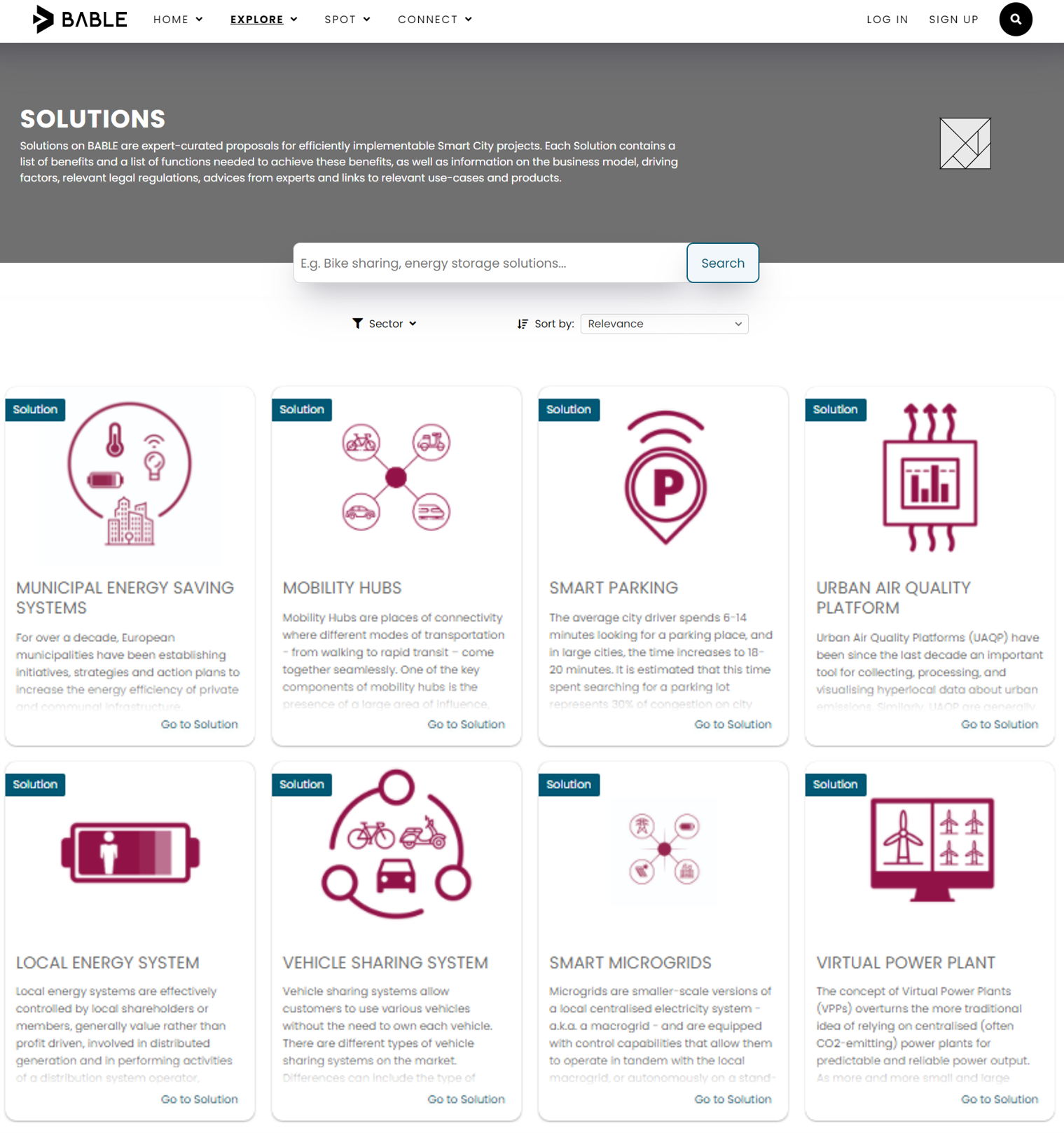SPARCS DELIVERABLE : 5.2. WHAT SOLUTIONS ARE THE SPARCS’ LIGHTHOUSE CITIES IMPLEMENTING?
There are several solutions to urban challenges available on the market. Each solution can be implemented in different variants – responding to local circumstances, the available budget or the needs of the local community. To decide if a solution is suitable for a city and which would be beneficial characteristics of it, in-depth knowledge about the solution itself is necessary.
As part of the work done for the Replication tasks in SPARCS, BABLE created rich, expert curated, neutral information packages (so-called Solutions), based on the Use Cases from the Lighthouse Cities (Espoo and Leipzig). The content and structure of the Solutions aim to break down the complexity of the technical systems (Products) offered by the market and aggregate information from individual applications (Use Cases) – see Figure 1. In collaboration with an European community of experts, we structured the packaged solutions for smart cities in a way that they are modular, configurable, standardised, and neutral.
![]()
Relation between Solutions, Products and Use Cases
This information is relevant for cities because it helps them understand what they can get from the market and what benefits the solution may create to make more informed decisions, while also supports them at the procurement stage providing key information that should be included in the tender documents like the description of the system, variants, and desired functionalities.
The solutions prove to be useful for product/service providers as well since their offers can be connected to the relevant solution supporting them in their communication to the public sector. The products of companies will be linked to Solutions and Use Cases, a step that will be followed with the SPARCS consortium in the upcoming months.
As part of this deliverable, the following Solutions have been researched and made available online based on the planned implementations by the cities of Leipzig and Espoo. Each of them includes a link to the specific webpage where they are publicised.
Energy Solutions
2. Energy Efficient Retrofitting of Buildings
4. Building Energy Management Systems
5. Decentralised Local Energy Systems
6. Municipal Energy Saving Systems
7. Peer to peer energy trading
9. District Heating and Cooling System
ICT
11. Digital Twin
12. Urban Air Quality Platform
Mobility Solutions
14. Bi-directional Electric Vehicle Charging

